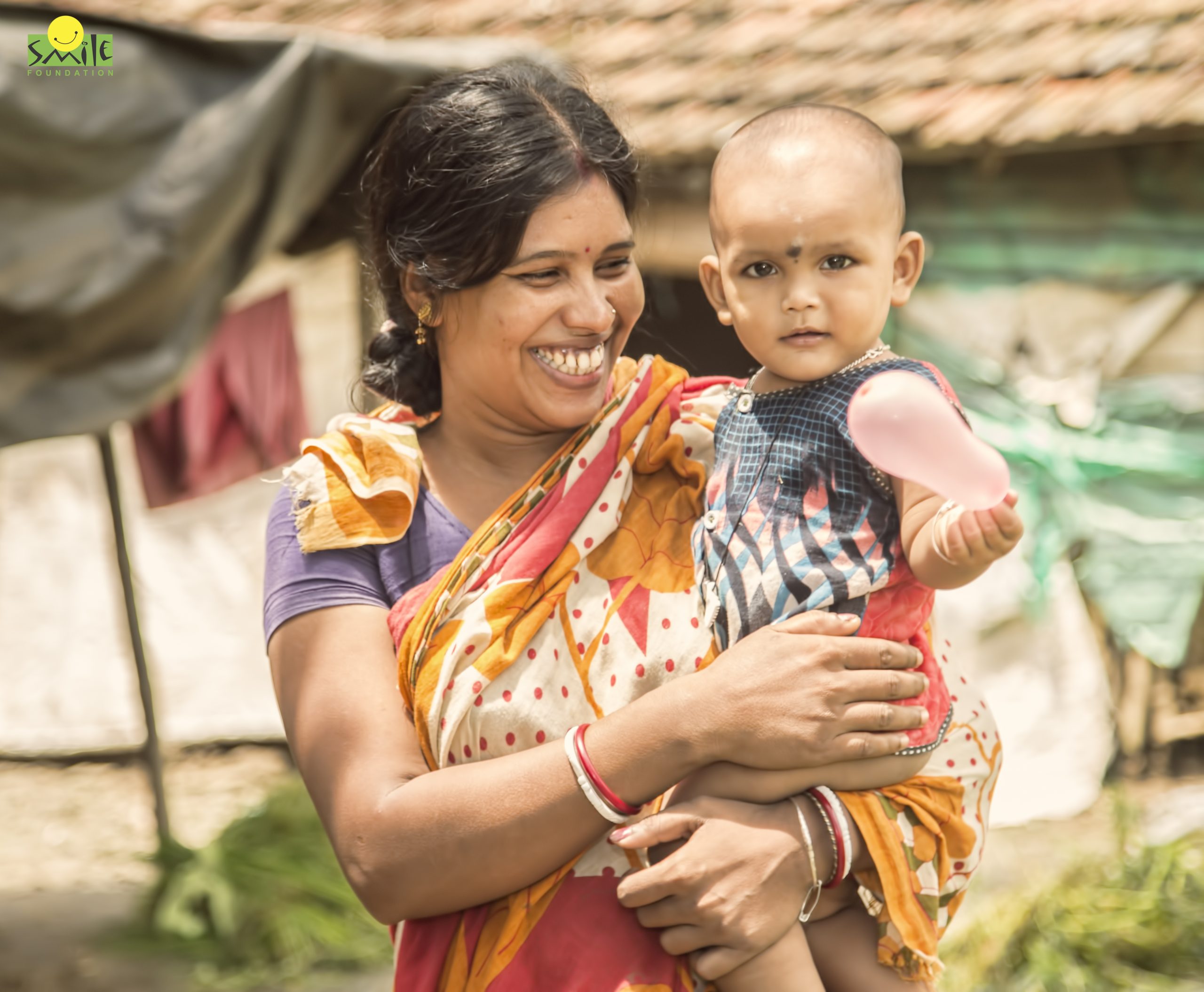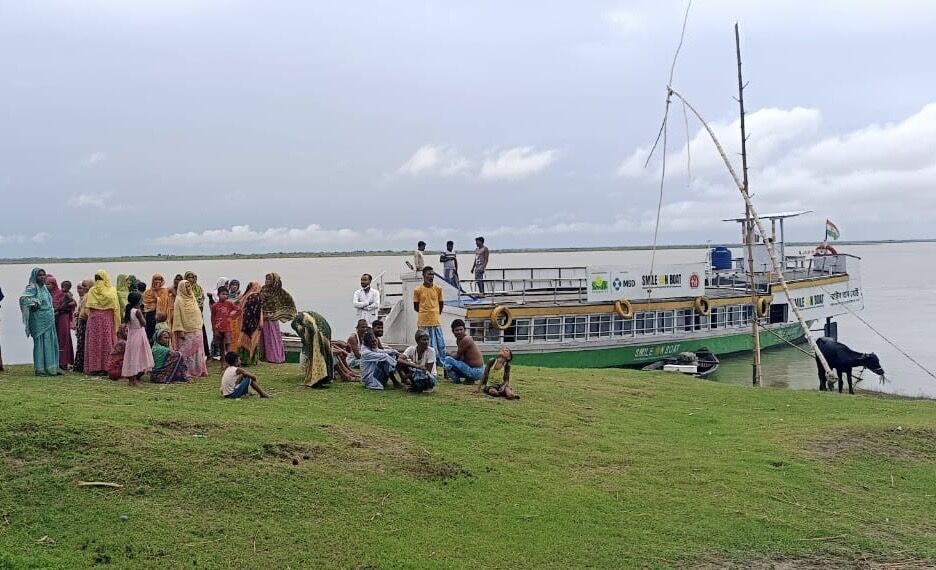India’s remarkable strides in maternal care and infant health paint a hopeful picture. The Maternal Mortality Ratio (MMR) has fallen from 130 to 97 per 100,000 live births. Neonatal and infant mortality rates have also dropped significantly—by 65% and 69% respectively—surpassing global averages. Yet behind these promising statistics lies a sobering reality of India’s rural maternal care system.
Each number represents a mother—often rural, frequently impoverished, and too often unheard. Her journey through pregnancy and childbirth is far more than a biological event. Such scenarios reflect that we are going through a test of strength of our maternal care system in rural India, the equity of our social structures, and the depth of our collective compassion, and we have a long way to go.
Rituals of care – More than cultural symbols
In rural India, baby showers, known by various names like Godh Bharai, Seemantham, Shaad, or Dohale Jevan, are threads in a communal safety net. These traditions embody emotional, spiritual, and nutritional support for the expectant mother.
In North India’s Godh Bharai, blessings, music, and festive meals offer joy and reassurance. South India’s Seemantham celebrates the mother with bangles believed to emit vibrations that calm the unborn child. In Eastern and Western regions, food, music, and community love are central to ceremonies like Shaad and Dohale Jevan.
Beyond their spiritual richness, these events reduce maternal stress, reinforce support networks, and provide emotional grounding—essentials for a safe pregnancy. The shared wisdom from older women, nourishing foods, and joyful celebrations help prepare her mentally and physically for childbirth and motherhood. Such ceremonies also mark a shift in the mother’s role, affirming her importance and care within the family.
This emotional reassurance, combined with social and nutritional support, contributes to better maternal health and can positively impact the baby’s development. In essence, these age-old customs are deeply rooted systems of community care that foster resilience, wellbeing, and healthy beginnings.
The gaps in rural maternal healthcare
India’s efforts to improve maternal health have yielded significant progress. Since 1990, the country has witnessed an 83% decline in its Maternal Mortality Ratio (MMR), a testament to national policy interventions and improved service delivery under frameworks like the National Health Mission. However, behind these promising statistics lies a more complex and uneven reality—particularly in rural India.
Critical complications such as excessive bleeding (postpartum haemorrhage), sepsis, pregnancy-induced hypertension, obstructed labour, and unsafe abortions continue to claim the lives of countless women, especially those in underserved regions. The persistence of these largely preventable causes underscores that while healthcare systems have expanded, their reach, reliability, and equity remain insufficient.
Awareness: What she doesn’t know can hurt her
Lack of awareness remains a major barrier to accessing maternal healthcare in India. Many women are unaware of the importance of antenatal check-ups (ANC), resulting in missed opportunities for early detection of complications. Among currently pregnant women, only 30% had three or more ANC visits, while 27% had none. Even among lactating women, 18% reported zero ANC visits. In Punjab, NFHS-4 data shows just 67.8% of women received four ANC visits. These figures underline the urgent need for targeted awareness campaigns to promote consistent, informed engagement with maternal and child health services.
Affordability: Confronting the cost of survival
For many rural families, maternal health is a financial compromise. The inability to afford nutritious food, travel for medical check-ups, or private consultations leads to delayed care and preventable complications.
Furthermore, women delay antenatal check-ups or give birth at home, not by choice—but because they simply cannot afford the journey to a clinic, the tests, or even a nutritious meal. With no financial cushion, families often choose between food and healthcare.
The absence of affordable iron supplements, fresh vegetables, or hygiene essentials leaves mothers dangerously malnourished and anemic. The result is a cycle of poor maternal outcomes passed down across generations because health becomes a luxury only few can buy.
Accessibility: When care is far, risks grow near
In rural India, many expectant mothers face the harsh reality of travelling several kilometres—often on unpaved roads or via scarce public transport—to access even basic healthcare. These delays can prove fatal, especially during labour or pregnancy-related emergencies. The absence of reliable transport systems and referral mechanisms further compounds the risk. Sub-centres and primary health centres, intended as frontline providers of maternal care, are frequently understaffed, under-equipped, or entirely non-existent. Without skilled birth attendants and timely access to essential medicines and diagnostic tools, treatable complications like haemorrhage, eclampsia, and infections become deadly. The distance to care becomes a life-threatening gap.
Availability: Geography and broken systems block the path to care
A mother in a remote village may walk miles for a blood pressure check, or worse, never go at all. Healthcare is often distant and sporadic, with clinics understaffed or unreachable. Mobile medical vans are rare, and even when available, they may not return soon enough. Anganwadi workers, often the only hope for health education, are stretched thin.
The lack of timely screenings or follow-ups can turn a manageable condition into a fatal one. For these women, distance and delay can be the difference between life and death.
Intersecting Inequities
These three barriers do not operate in isolation. Rather, their intersection deepens existing socio-economic divides. Data consistently shows that utilisation of maternal healthcare services—both antenatal and postnatal—varies sharply based on income, caste, education, and geography. Women from lower-income or marginalised communities are significantly less likely to receive skilled care during childbirth, contributing to disproportionate maternal health outcomes.
Moreover, the absence of skilled healthcare workers at the time of delivery remains a persistent challenge. Without trained personnel to guide safe births and manage complications, the goal of ensuring every mother a safe pregnancy remains unmet in large parts of the country. In sum, the journey towards maternal health equity in rural India requires more than infrastructure—it demands a transformation of systems, mindsets, and investments that address the availability, accessibility, and affordability of care for every woman.
Community care in action with Swabhiman
Our initiatives directly involve pregnant women, lactating mothers, caregivers, and children through awareness, counselling, and interactive sessions. We aim at driving behavioral change around nutrition and health practices for women within her community. In the financial year of 2024, Swabhiman
- Reached 190,000+ women across 6 states
- Sensitised 76,000+ women on reproductive and child health
- Provided healthcare to 72,000+ women and children
Stakeholder & community engagements
Sustainable change in maternal and child health initiatives begins with effective collaboration among key stakeholders. Regular interface meetings are held with Panchayati Raj Institutions (PRI) members, government officials, and representatives from various sectors such as education, health, and local governance.
Key Initiatives and Community Involvement
- Community Kitchen Gardens:
To improve nutritional intake, 22 community kitchen gardens were established, providing beneficiaries with locally grown vegetables such as bottle gourd, tomatoes, and pumpkins. - Observing Special Days:
Key health and nutrition-related days such as Women’s Day, Breastfeeding Week ,and POSHAN MAH were observed with awareness campaigns, screening camps, recipe competitions, and educational sessions. These events aimed to educate women and caregivers on proper nutrition and maternal care practices. - Breastfeeding Awareness Week:
In partnership with ICDS and the PepsiCo Foundation, Smile Foundation organised breastfeeding demonstrations, emphasising the benefits of proper attachment and positioning. Awareness sessions educated caregivers on the importance of breastfeeding for both mother and child. - Godh bharai and Annaprashan Diwas:
Monthly events focused on maternal and child nutrition included Godh bharai for pregnant women, offering nutritional support and education, and Annaprashan for children starting complementary feeding. These celebrations provide vital community support and promote behaviour change in nutrition practices. - POSHAN MAH Celebrations:
Smile Foundation, along with ICDS and Education departments, organised nutrition recipe competitions, school-level activities, and kitchen garden initiatives during POSHAN MAH, enhancing community involvement and nutrition awareness.
Through these initiatives, stakeholder collaboration and community participation continue to drive positive outcomes in maternal and child health.
Nutrition is grown, served, and shared
Nutrition and maternal care are not just delivered — they are cultivated, practised, and celebrated within the community. Nutrition is grown in kitchen gardens, served through local recipes, and shared via counselling, health camps, and regular screenings — ensuring year-round wellbeing for mothers and children.
Growing nutrition inside homes
132 kitchen gardens were set up at Anganwadi centres and homes, including 3 community gardens, using distributed winter vegetable seeds. This ensured access to fresh produce for daily use and nutrition events. The Education Department expanded the model to 21 schools through district and NRLM support.
Learning through recipes
Inter-village recipe contests engaged 151 women and caregivers, showcasing healthy, affordable dishes using local ingredients. Judged by officials, the contests promoted practical nutrition and honoured winners at the district level.
Counselling and Follow-Up
Regular follow-ups were conducted for anaemic and malnourished women, with ASHAs, Anganwadi workers, and community staff offering focused counselling and timely referrals to strengthen maternal health outcomes.
PARTNER FOR COMMUNITY-LED TRANSFORMATION
Maternal care in India is at a pivotal moment. While national data reflects progress, the ground reality in rural areas demands deeper, more inclusive interventions. It is not merely about improving statistics but transforming lives.
The Swabhiman programme offers a blueprint for community-led, sustainable maternal health solutions. Its success is rooted in collective action—from mothers and caregivers to local officials and frontline workers.
CSR partnerships have the potential to amplify this impact manifold. By aligning business resources with community health goals, companies can co-create meaningful change—ensuring a robust maternal care in across India, including the remotest corners because every mother receives the care, dignity, and support she deserves.
This Mother’s Day, partner to scale community reach. Let’s make care meet for rural mothers of India.










